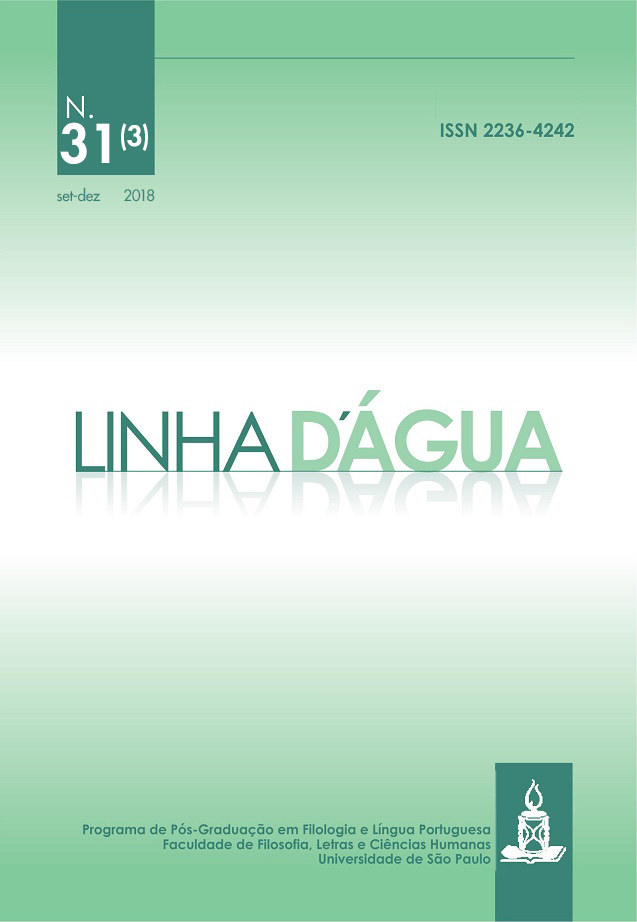A Comparative Analysis of Scientific Vulgarization Blogs in Portuguese
The Scientific Discoveries in Perspective
DOI:
https://doi.org/10.11606/issn.2236-4242.v31i3p73-97Keywords:
Comparative Analysis, Word, Scientific Divulgation, Scientific Discovery, Bakthin CircleAbstract
Based on the Bakhtin’s Circle theory, we propose a comparative analysis of two blogs specialized in scientific discoveries, namely: “De Rerum Natura” and “Cientistas descobriram que ...”. Although they are written in the same official language, Portuguese, the blogs are published by researchers from two different countries, Portugal and Brazil. Consequently, we believe that blogs produce meanings according to the peculiarities of the ideological spheres of their original countries. Our main goal is to identify the meanings attributed to the notion of discovery in the posts of the two blogs, through linguistic and extralinguistic aspects. Firstly, we have be taken to the lexical entries of the linguistic sign ‘discovery’ in Portuguese and Brazilian dictionaries and we have been able to deduce two significant meanings for the context of the statements in our corpus: the discovery as a scientific finding and the result of studies; and the discovery related to the discovery of lands. This second meaning is related to the socio-historical horizon shared by the two countries around the ‘discovery’ of Brazil and other Lusophone countries. In our analysis, we could verify that the same linguistic materiality revealed different dialogical relations and temporalities in the concretization of the utterances, in the dimension of the meaning.
Downloads
Downloads
Published
Issue
Section
License
The Editorial Board authorizes free access to and distribution of published contentes, provided that the source is cited, that is, granding credit to the authors and Linha D'Água and preserving the full text. The author is allowed to place the final version (postprint / editor’s PDF) in an institutional/thematic repositor or personal page (site, blog), immediately after publication, provided that it is available for open access and comes without any embargo period. Full reference should be made to the first publication in Linha D'Água. Access to the paper should at least be aligned with the access the journal offers.
As a legal entity, the University of São Paulo at Ribeirão Preto School of Philosophy, Sciences and Languages owns and holds the copyright deriving from the publication. To use the papers, Paidéia adopts the Creative Commons Licence, CC BY-NC non-commercial attribution. This licence permits access, download, print, share, reuse and distribution of papers, provided that this is for non-commercial use and that the source is cited, giving due authorship credit to Linha D'Água. In these cases, neither authors nor editors need any permission.
Partial reproduction of other publications
Citations of more than 500 words, reproductions of one or more figures, tables or other illustrions should be accompanied by written permission from the copyright owner of the original work with a view to reproduction in Linha D'Água. This permission has to be addressed to the author of the submitted manuscript. Secondarily obtained rights will not be transferred under any circumstance.










